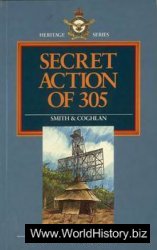Once the furor over war and subversion subsided, public attention focused on the presidential contest between Adams and Jefferson. Because of his stand for peace, Adams personally escaped the brunt of popular indignation against the Federalist party. His solid qualities had a strong appeal to conservatives, and fear that the Republicans would introduce radical “French” social reforms did not disappear when the danger of war with France ended. Many nationalist-minded voters worried that the Republicans, waving the banner of states’ rights, would weaken the strong government established by the Federalists. The economic progress stimulated by Hamilton’s financial reforms also seemed threatened. But when the electors’ votes were counted in February 1801, the Republicans were discovered to have won narrowly, seventy-three to sixty-five.
But which Republican was to be president? The Constitution did not distinguish between presidential and vice presidential candidates; it provided only that each elector vote for two candidates, the one with the most votes becoming president and the runner-up vice president. The development of national political parties made this system impractical. The vice presidential candidate of the Republicans was Aaron Burr of New York, a former senator and a rival of Hamilton in law and politics. But Republican party solidarity had been perfect; Jefferson and Burr received seventy-three votes each. Because of the tie, the Constitution required that the House of Representatives (voting by states) choose between them.
In the House the Republicans could control only eight of the sixteen state delegations. On the first ballot Jefferson got these eight votes, one short of election, while six states voted for Burr. Two state delegations, being evenly split, lost their votes. Through thirty-five ballots the deadlock persisted; the Federalist congressmen, fearful of Jefferson’s supposed radicalism, voted solidly for Burr.
Pressures were exerted on both candidates to make deals to win additional support. Officially at least, both refused. Burr put on a great show of remaining above the battle. (Had he been an honorable man, he would have withdrawn, since the voters had clearly intended him for the second spot.) Whether Jefferson made any promises is uncertain; there is some evidence that to break the deadlock he assured the Federalists that he would preserve Hamilton’s financial system and continue the Washington-Adams foreign policy.
Democratic-Republican (Jefferson)
Federalist (J. Adams)
The Wild Election of 1800 The election of 1800 was arguably the weirdest in the nation's history. When the electors' votes were counted in February 1801, the Republicans won New York State—and, seemingly, the election, seventy-three to sixty-five. But which Republican was to be president? The Republican electors held to the party line: Jefferson and Burr each received seventy-three votes. Because of the tie, the Constitution required that the House of Representatives (voting by states) choose between them. Jefferson ultimately prevailed.
In the end, Alexander Hamilton decided who would be the next president. Although he considered Jefferson “too much in earnest in his democracy” and “not very mindful of truth,” he detested Burr. He exerted his considerable influence on Federalist congressmen on Jefferson’s behalf. Finally, on February 17, 1801, Jefferson was elected. Burr became vice president.
To make sure that this deadlock would never be repeated, the Twelfth Amendment was drafted, providing for separate balloting in the Electoral College for president and vice president. This change was ratified in 1804, shortly before the next election.




 World History
World History









